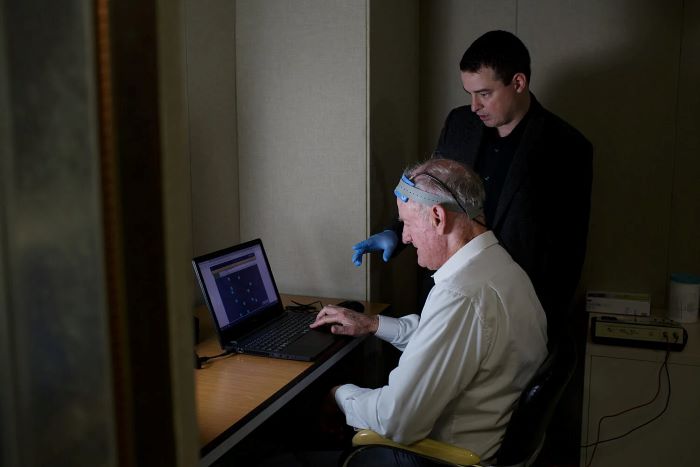Brain stimulation treatment may improve depression, anxiety in older adults

Dr. Adam Woods and a model participant demonstrate use of the tDCS device paired with computer-based cognitive training. (Mindy C. Miller)
A noninvasive brain stimulation treatment improved depression and anxiety symptoms among older adults in a new University of Florida College of Public Health and Health Professions-led study.
Improvements in depression and anxiety symptoms were greatest among patients who reported higher symptom levels before treatment. Among participants who experienced moderate to severe state anxiety — or anxiety associated with stressful situations or events — the treatment benefits persisted at a one-year followup.
The findings, published in the journal Brain Stimulation, suggest the treatment, known as transcranial direct current stimulation, or tDCS, holds promise as a noninvasive, drug-free option to treat depression and anxiety symptoms, which affect 1 in 4 older adults.
“Depression and anxiety can impact our overall mental health, cognitive function and ability to function independently as we age,” said the study’s senior author Adam Woods, Ph.D., the associate dean for research and a professor of clinical and health psychology at the UF College of Public Health and Health Professions and co-director of UF’s Center for Cognitive Aging and Memory Clinical Translational Research. “Often, front-line treatments involve medication and/or therapy, which can both be effective. However, there is also a pressing need for accessible and noninvasive options that can be deployed in people who are either nonresponsive to pharmaceutical treatment, unable to access or participate in clinic-based intensive treatment programs, or for a variety of other reasons.”